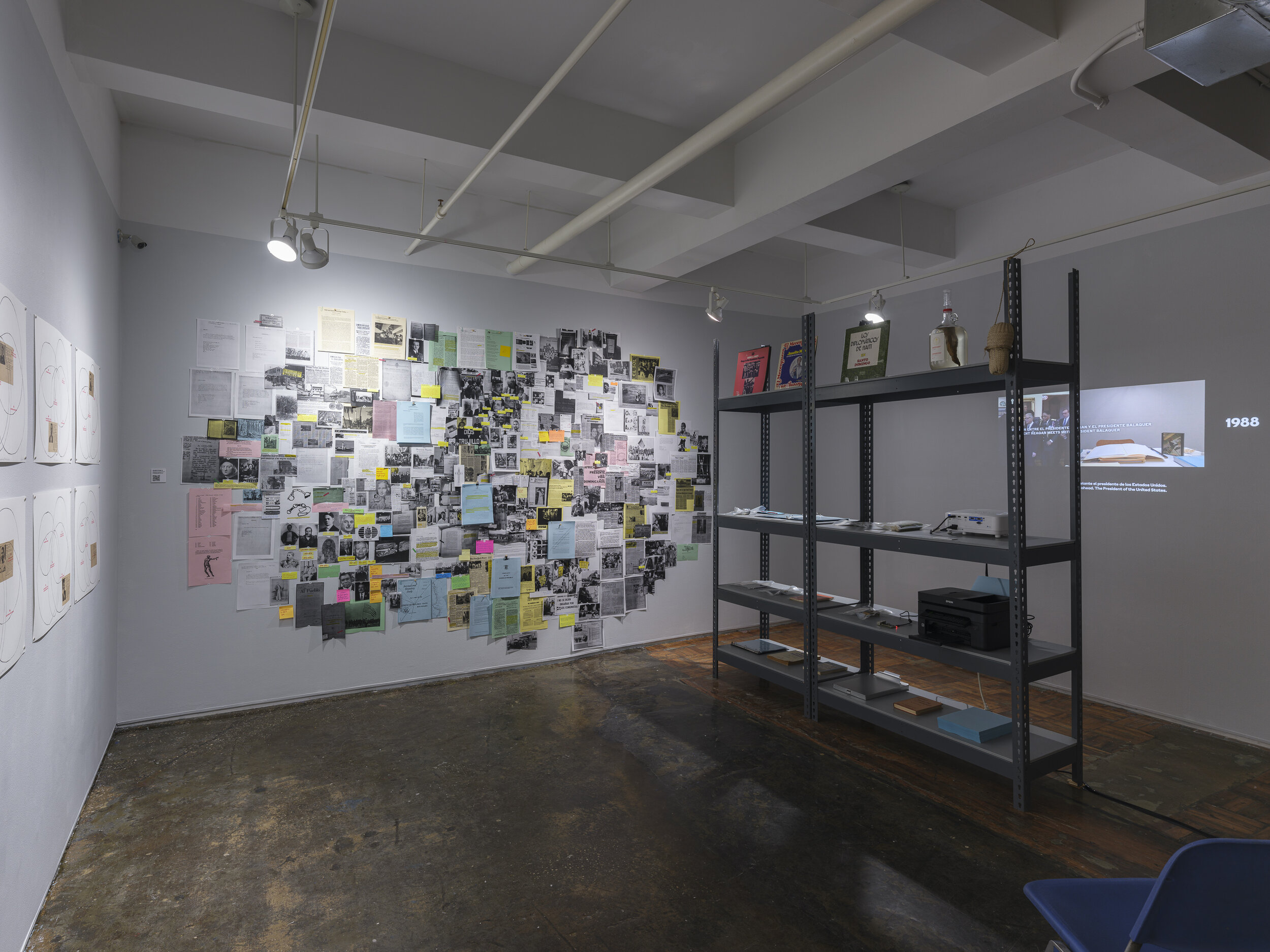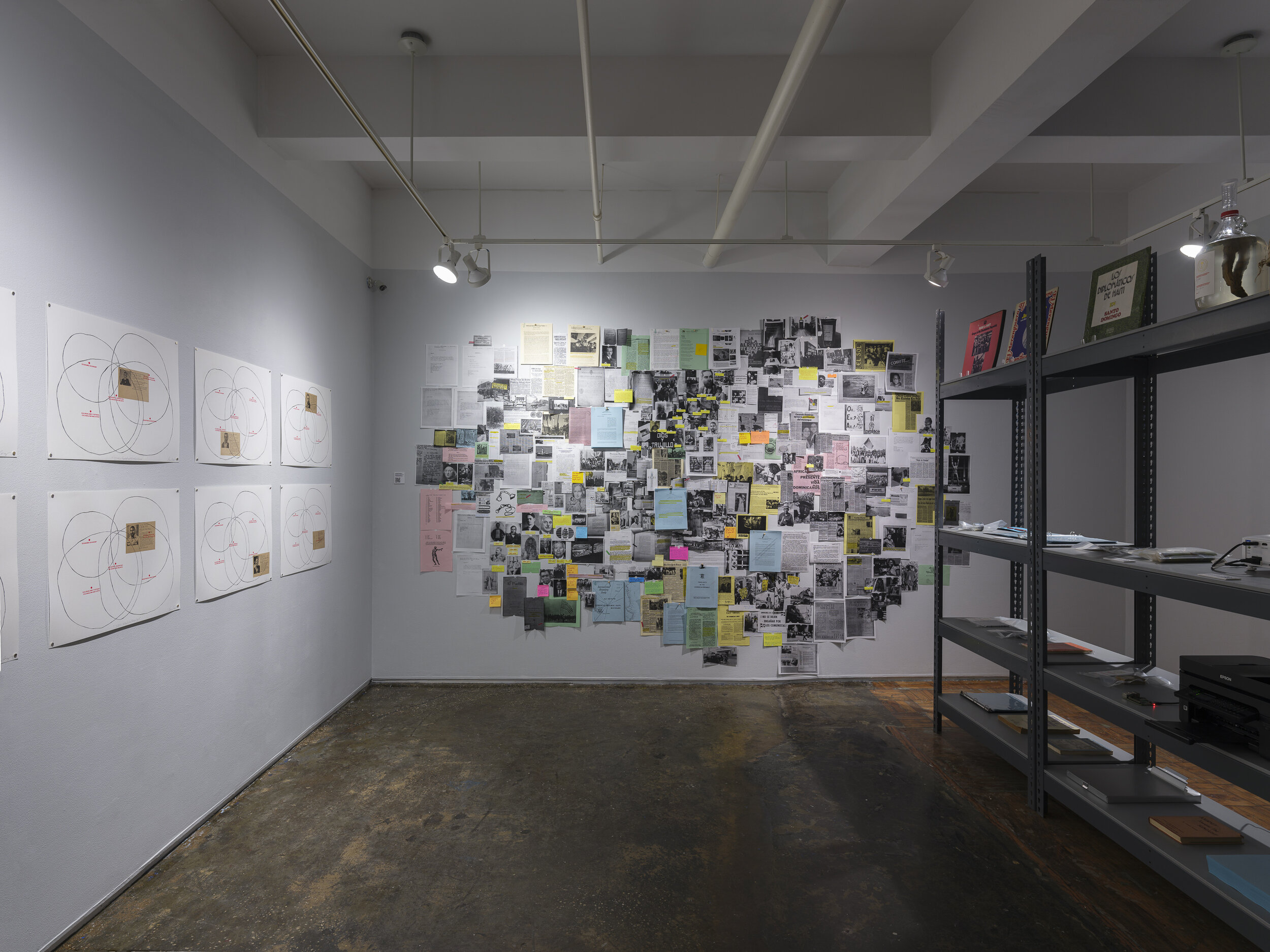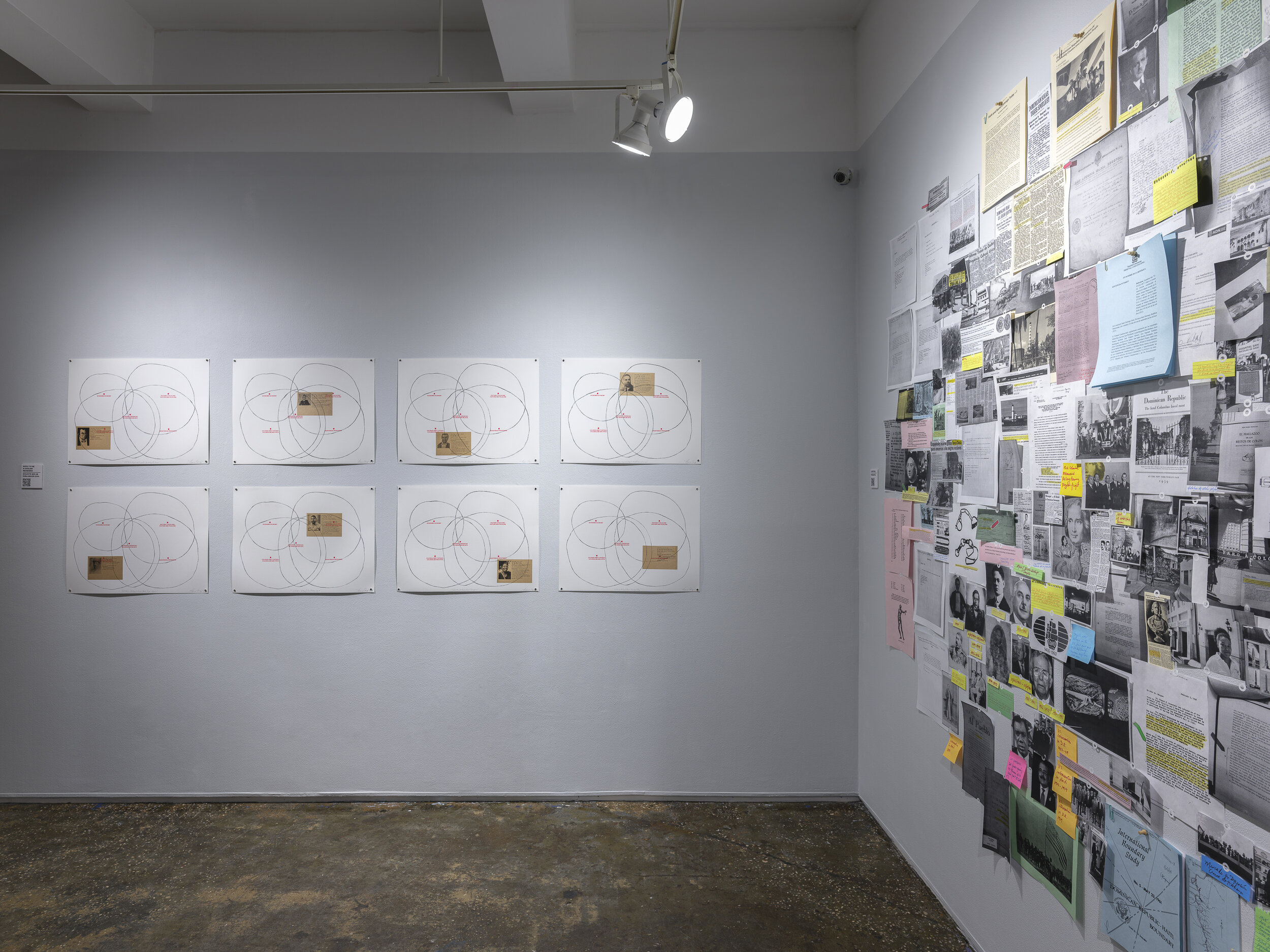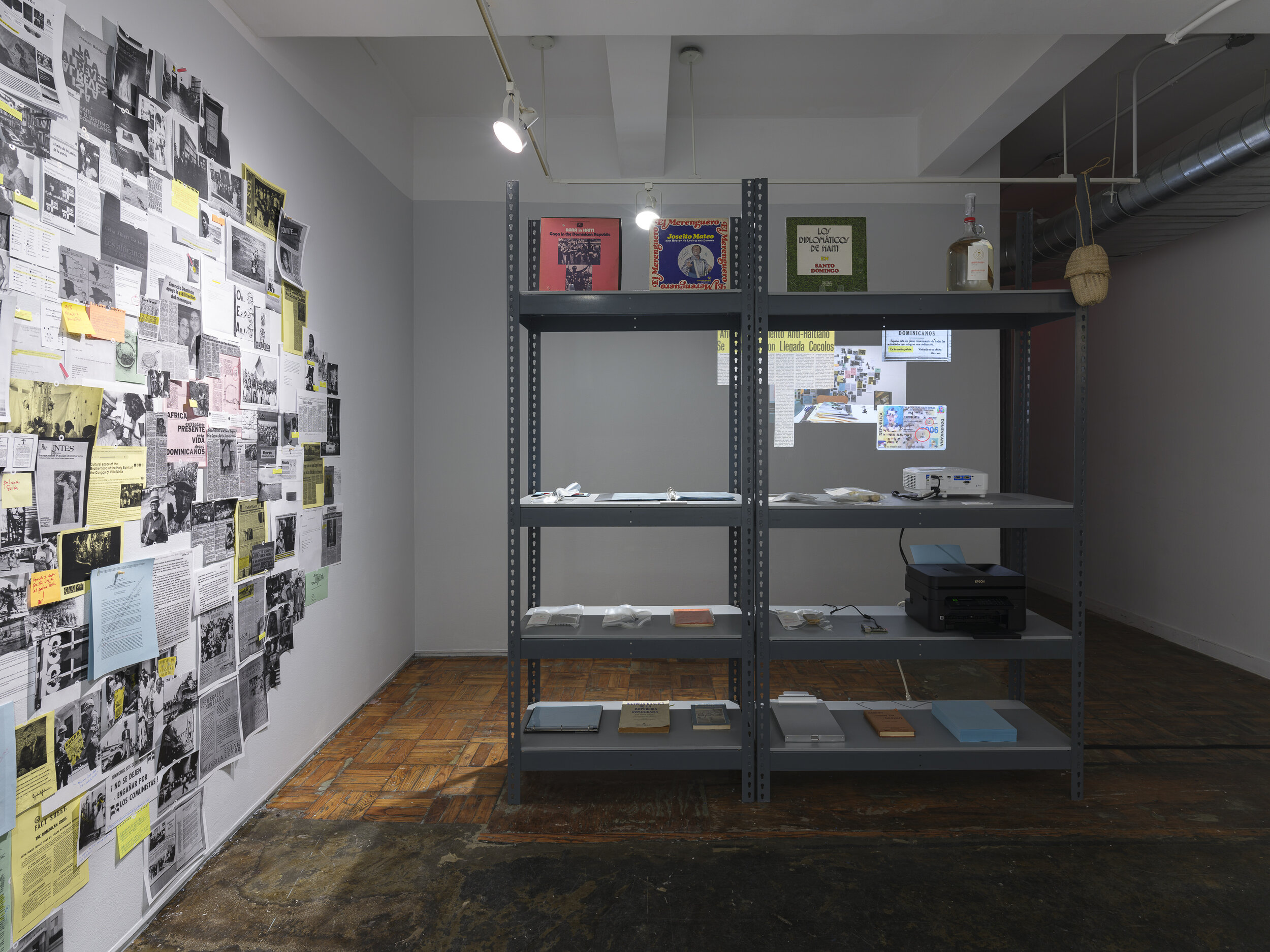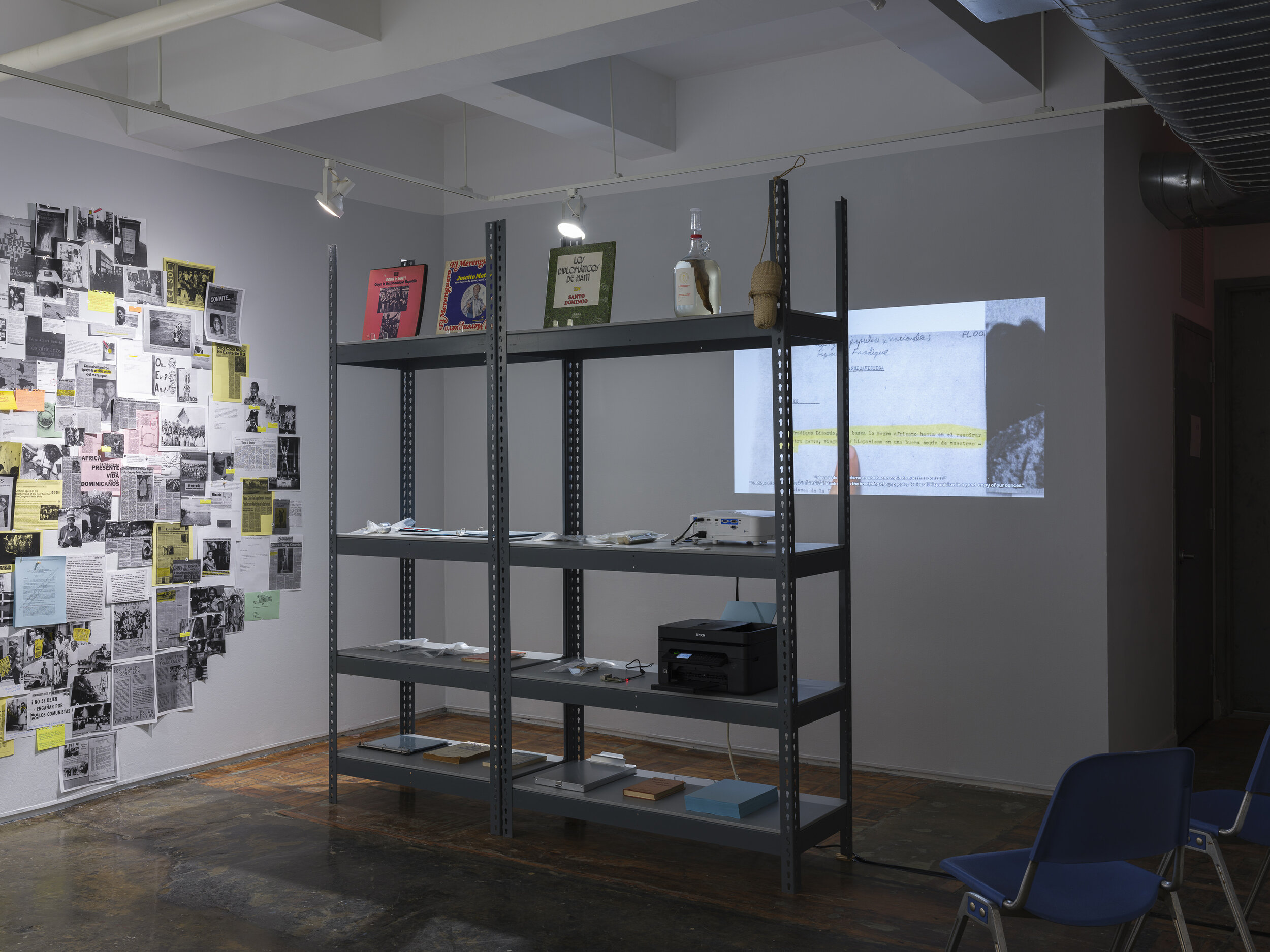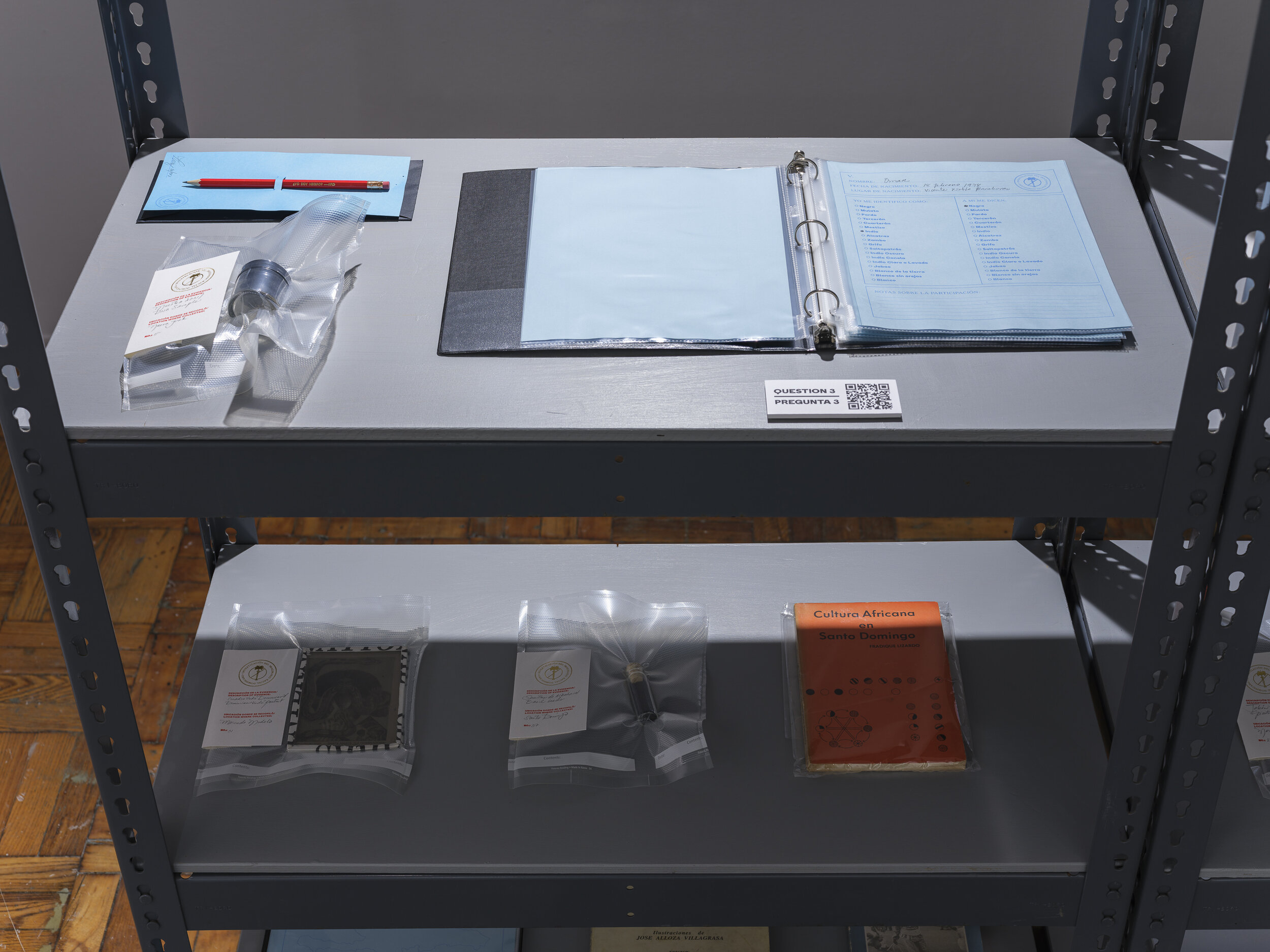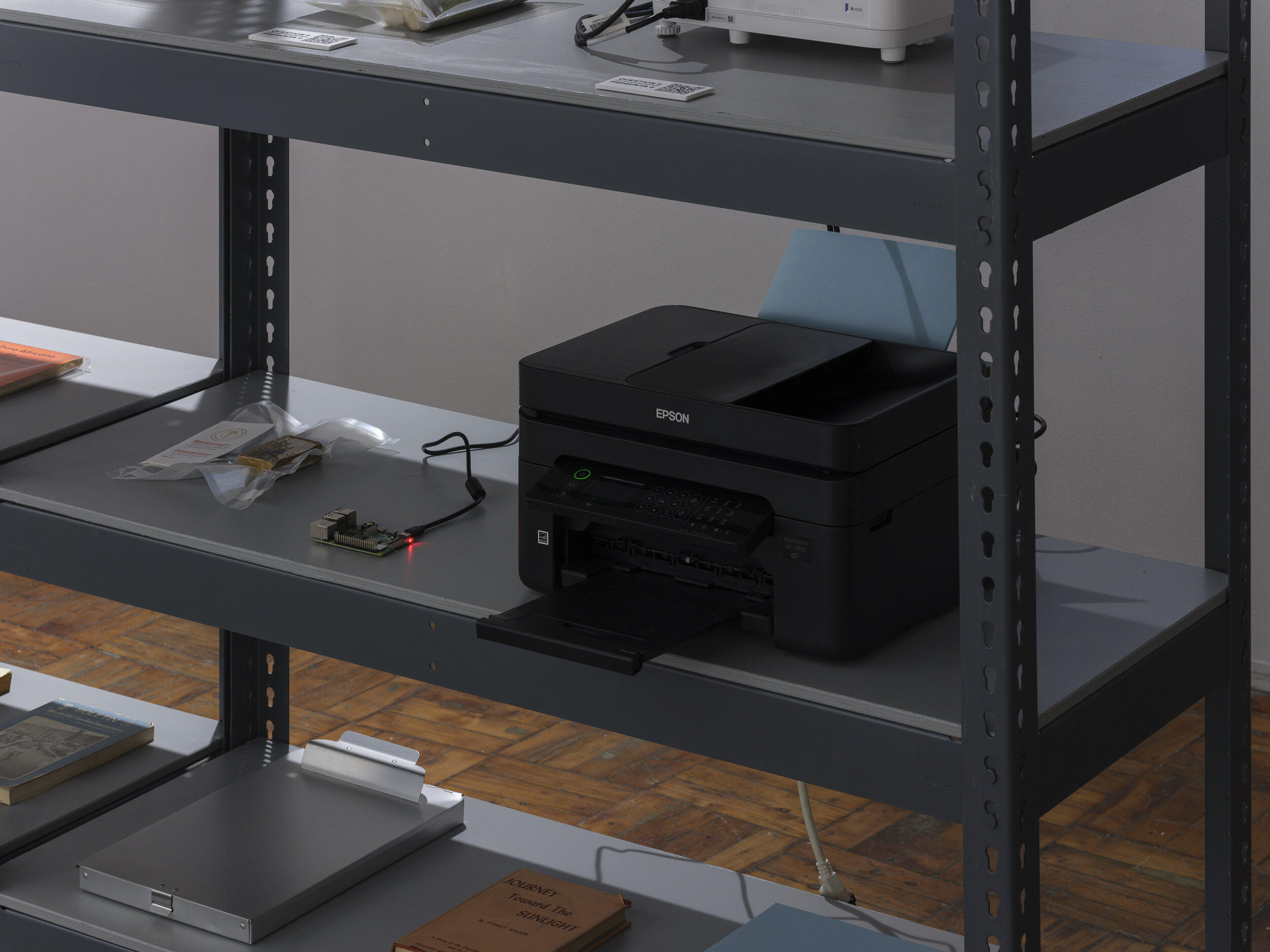In Search of Motives
Lizania Cruz
GALLERY III
Lizania Cruz, Investigation’s Timeline (2019-2021), 2021, wall installation, detail.
April 23 — May 23, 2021
“The racial contract is a historical actuality.”
— Charles W. Mills
Dear [ ],
A.I.R. Gallery kindly requests your participation in In Search of Motives, the first chapter of 2020-2021 A.I.R. Fellow Lizania Cruz’s new body of work titled Investigation of the Dominican Racial Imaginary. In this inaugural chapter, Cruz examines national and personal archives alongside individual testimonies gathered from the public in order to uncover evidence of the role that historical narrative has played in repressing African heritage within the Dominican Republic. In Search of Motives marks Cruz’s first solo exhibition in New York City.
For Cruz, Investigation of the Dominican Racial Imaginary represents a necessary first step in assessing anti-Haitian sentiment in her home country, driven in part by Haitian migration traceable to the rise of the Dominican Republic as a global producer of sugar. In 2013, for example, La Sentencia 168-13 retroactively revoked Dominican citizenship from an estimated 250,000 Dominicans of Haitian descent. For Cruz, the motives for such a law might be found by establishing links between the Dominican racial imaginary and how Dominicans view their Haitian neighbors. This investigation, which Cruz sees as a criminal case, moves away from the colonial understanding of history as linear and instead approaches it as a pluralist narrative that crosses the past, present, and future.
Among the pieces of evidence presented in the exhibition is a series of fine prints that use a combination of photolithography, etching, and silkscreening to represent a number of "suspects" and “witnesses” in Cruz's investigation: colonialism and estate, religion and beliefs, culture and folklore, economy, and resistance. A large-scale mind map installed in the gallery collects the ongoing investigation’s archives and papers, while a projected video connects Cruz’s studio research and interview-style participatory actions held in the Dominican Republic with archival video footage.
Upon considering this evidence, Cruz invites you to participate in the project via an online platform accessible only from within the exhibition space. Taking the form of a series of questions related to the investigation, this participatory element allows visitors to print out a preliminary assessment of their qualifications to “see and defend the truth” as an objective participant in an investigation in which geopolitical relationships, memory, and the ghosts of the archive are all suspects.
This project was made possible by the generous support of the Foundation for Contemporary Arts and BRIClab Contemporary Art Residency.
The gallery is open by appointment only. To book an appointment, click here.
Lizania Cruz (b. 1983) is a Dominican participatory artist and designer interested in how migration affects ways of being & belonging. Through research, oral history, and audience participation, she creates projects that highlight a pluralistic narrative of migration. Cruz has been an artist-in-residence and fellow at the Laundromat Project Create Change (2018-2019), Agora Collective Berlin (2018), Design Trust for Public Space (2018), Recess Session (2019), IdeasCity:New Museum (2019), Stoneleaf Retreat (2019), Robert Blackburn Workshop Studio Immersion Project (SIP) (2019), A.I.R. Gallery (2020-2021), BRIClab: Contemporary Art (2020-2021), Center for Book Arts (2020-2021), and Jerome Hill Artist Fellow, Visual Arts (2021-2022).
Public Program
The Archive as a Tool for Emancipation (El archivo como herramienta de emancipación)
Thursday, May 20, 2021 at 7 PM ET via Zoom
Click here to RSVP.
For more information, click here.
A conversation with anthropologist Edis Sanchez and archivist and researcher Jhensen Ortiz on the importance of the archives of Fradique Lizardo of Dominican Folklore, declared part of the Memory of the World Programme of Latin America and the Caribbean by UNESCO, and the archives of the Mother Bethel AME/ St. Peter’s Evangelical Church in Samaná, Dominican Republic, whose founding members were free African Americans who migrated from various locations in the US beginning in 1824 looking for a better future. This conversation will be moderated by the artist Lizania Cruz in conjunction with her current exhibition at A.I.R. Gallery titled In Search of Motives.
Una conversación con el antropólogo Edis Sanchez y el archivista e investigador Jhensen Ortiz sobre la importancia de los archivos del Fondo Fradique Lizardo del Folklore Dominicano declarado Patrimonio de la Memoria del Mundo de América Latina y el Caribe y los archivos históricos de la iglesia africana metodista/evangélica de San Pedro en Samaná, la República Dominicana. Miembros fundadores de esta iglesia eran Afroamericanos libres que emigraron desde EEUU a mediados del siglo XIX en busca de un mejor futuro. Esta conversación será moderada por la artista Lizania Cruz a propósito de su exhibición en A.I.R. Gallery titulada En busca de los motivos.
Photography: Sebastian Bach
